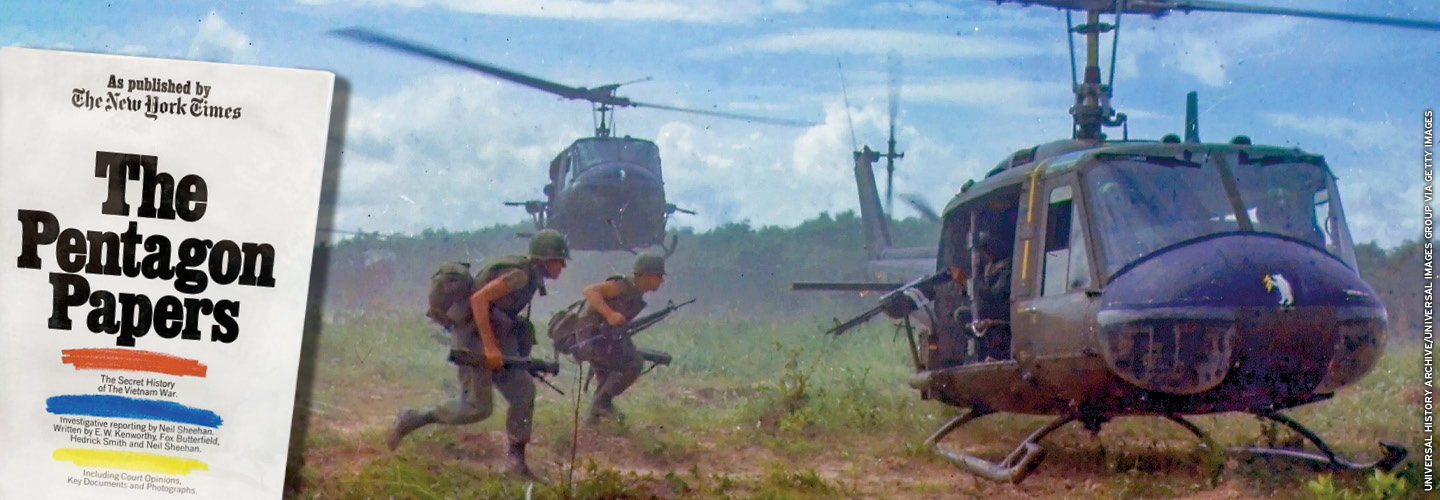Should the United States government be allowed to censor the press?
It’s a question that might sound more appropriate for an authoritarian country, not a democracy. After all, the First Amendment to the U.S. Constitution forbids Congress from enacting any law abridging the freedom of the press. But the question of just how free the press should really be to report on government secrets has, in fact, been up for debate since the nation’s founding.
“Every government must be able to work, to some extent, in secret. You have enemies in the world, you have problems that require very sensitive information,” says Lee Bollinger, a First Amendment scholar and president of Columbia University in New York City. “On the other hand, in a democracy, the citizens of a country have to be informed about what the government is doing.”
So how do you balance those two needs?
The most important Supreme Court case in modern history to tackle that question took place 50 years ago this summer, after President Richard Nixon’s administration tried to block The New York Times from publishing classified government documents that became known as the Pentagon Papers. The papers were a history commissioned by the Secretary of Defense of how the U.S. got entangled in the Vietnam War (see timeline slideshow below). What they revealed was shocking: President after president had expanded the U.S. role in Vietnam despite strong doubts about the chances for success and had misled the public about the reasons for the war.
Should the United States government be allowed to censor the press?
It’s a question that might sound more relevant in an authoritarian country, not a democracy. After all, the First Amendment to the U.S. Constitution keeps Congress from passing any law that limits the freedom of the press. But the question of just how free the press should really be to report on government secrets has, in fact, been up for debate since the nation’s founding.
“Every government must be able to work, to some extent, in secret. You have enemies in the world, you have problems that require very sensitive information,” says Lee Bollinger, a First Amendment scholar and president of Columbia University in New York City. “But, in a democracy, the citizens of a country have to be informed about what the government is doing.”
So how do you balance those two needs?
The most important Supreme Court case in modern history to tackle that question took place 50 years ago this summer. It occurred after President Richard Nixon’s administration tried to block The New York Times from publishing classified government documents. Those documents became known as the Pentagon Papers. The papers were a history commissioned by the Secretary of Defense of how the U.S. got entangled in the Vietnam War (see timeline slideshow below). They revealed two shocking things. First, the papers showed that president after president had expanded the U.S. role in Vietnam despite strong doubts about the chances for success. They also detailed how these presidents had misled the public about the reasons for the war.

